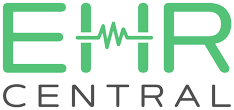Key Points to Remember for Nurse Practitioners When Outsourcing Billing Services
Outsourcing billing services has become a common practice in the healthcare industry, enabling healthcare providers like Nurse Practitioners (NPs) to focus more on patient care and less on administrative tasks. However, choosing the right billing service and

ensuring a smooth transition requires careful consideration of various factors. In this blog, we will discuss the key points that Nurse Practitioners should remember while outsourcing billing services to ensure a successful and efficient billing process.
Understand Your Practice’s Needs
Before considering outsourcing billing services, NPs must clearly understand their practice’s needs and goals. Analyze the volume of patients, types of services provided, and the complexity of billing codes your practice typically deals with. This will help you tailor your outsourcing requirements and choose a billing service that aligns with your practice’s unique demands.
Evaluate Billing Service Experience in Healthcare
When selecting a billing service, it’s crucial to ensure they have experience in the healthcare industry, particularly with medical billing for Nurse Practitioners. Healthcare billing comes with its own set of regulations, codes, and compliance requirements. Look for a billing service that specializes in medical practices, preferably with experience serving NPs, as this will lead to better accuracy and fewer errors.
How EHRCentral enhances your healthcare practice?
Check for HIPAA Compliance
Health Insurance Portability and Accountability Act (HIPAA) compliance is a must for any healthcare-related service, including billing. Ensuring the protection of patient information and maintaining confidentiality is vital. When outsourcing billing, verify that the service provider has robust HIPAA-compliant systems and protocols in place to safeguard patient data.
Transparency and Communication
Open communication and transparency are key components of a successful outsourcing partnership. Discuss your expectations, preferred communication channels, and reporting frequency with the billing service. Clear communication ensures that you stay updated on the billing process, potential issues, and revenue trends.
Technology and Software Compatibility
Smooth billing operations rely on the technology and software used by both your practice and the billing service. Confirm that their billing software is compatible with your electronic health record (EHR) system and practice management software. This compatibility streamlines data exchange and reduces the chances of errors during the billing process.
Billing Process and Workflow
Understand the billing process and workflow of the outsourced service. How do they handle claims submissions, follow-ups on denials, and patient inquiries? A well-structured workflow ensures that claims are processed accurately and promptly, leading to fewer claim rejections and faster revenue cycles.
Knowledge of Medical Codes and Reimbursement
Medical coding is a complex process that directly impacts reimbursement rates. A knowledgeable billing service should clearly understand the latest medical codes (such as CPT, ICD-10) and insurance policies. This knowledge ensures accurate coding, leading to proper reimbursement for the services you provide.
Claim Denial Management
Even with careful coding and submission, claim denials can still occur. An efficient billing service should have a robust claim denial management process in place. This involves identifying the reasons for denials, addressing them promptly, and resubmitting claims when necessary.
Revenue Cycle Management
Outsourcing billing services should be about submitting claims and optimizing the entire revenue cycle. From patient eligibility verification to accurate charge capture and timely payment posting, the billing service should manage the entire cycle efficiently to ensure consistent cash flow.
Customized Reporting and Analysis
Regular reporting and analysis of financial data are crucial for monitoring the health of your practice. Ensure that the billing service provides customized reports that help you track key performance indicators (KPIs), identify trends, and make informed decisions to improve revenue generation.
Conclusion
Outsourcing billing services can significantly alleviate administrative burdens for Nurse Practitioners, allowing them to focus more on patient care and practice growth. However, making the right choice in selecting a billing service requires careful consideration of various factors. By understanding your practice’s needs, evaluating experience, ensuring compliance, promoting communication, and considering workflow, coding, denial management, revenue cycle, and reporting, you can set the stage for a successful and efficient billing outsourcing partnership. With the right billing service, NPs can enhance their practice’s financial health while delivering high-quality patient care.





